- Home
- J. R. R. Tolkien
Unfinished Tales Page 20
Unfinished Tales Read online
Page 20
Then anger drove pity from Brandir’s heart, and he cried: ‘Crazed? Nay, crazed are you, Black Sword of black doom! And all this dotard people. I do not lie! Níniel is dead, dead, dead! Seek her in Teiglin!’
Then Túrin stood still and cold. ‘How do you know?’ he said softly. ‘How did you contrive it?’
‘I know because I saw her leap,’ answered Brandir. ‘But the contriving was yours. She fled from you, Túrin son of Húrin, and in Cabed-en-Aras she cast herself, that she might never see you again. Níniel! Níniel? Nay, Nienor daughter of Húrin.’
Then Túrin seized him and shook him; for in those words he heard the feet of his doom overtaking him, but in horror and fury his heart would not receive them, as a beast hurt to death that will wound ere it dies all that are near it.
‘Yes, I am Túrin son of Húrin,’ he cried. ‘So long ago you guessed. But nothing do you know of Nienor my sister. Nothing! She dwells in the Hidden Kingdom, and is safe. It is a lie of your own vile mind, to drive my wife witless, and now me. You limping evil – would you dog us both to death?’
But Brandir shook him off. ‘Touch me not!’ he said. ‘Stay your raving. She that you name wife came to you and tended you, and you did not answer her call. But one answered for you. Glaurung the Dragon, who I deem bewitched you both to your doom. So he spoke, before he ended: “Nienor daughter of Húrin, here is thy brother: treacherous to foes, faithless to friends, a curse unto his kin, Túrin son of Húrin”.’ Then suddenly a fey laughter seized on Brandir. ‘On their deathbed men will speak true, they say,’ he cackled. ‘And even a Dragon too, it seems! Túrin son of Húrin, a curse unto thy kin and unto all that harbour thee!’
Then Túrin grasped Gurthang and a fell light was in his eyes. ‘And what shall be said of you, Club-foot?’ he said slowly. ‘Who told her secretly behind my back my right name? Who brought her to the malice of the Dragon? Who stood by and let her die? Who came hither to publish this horror at the swiftest? Who would now gloat upon me? Do men speak true before death? Then speak it now quickly.’
Then Brandir, seeing his death in Túrin’s face, stood still and did not quail, though he had no weapon but his crutch; and he said: ‘All that has chanced is a long tale to tell, and I am weary of you. But you slander me, son of Húrin. Did Glaurung slander you? If you slay me, then all shall see that he did not. Yet I do not fear to die, for then I will go to seek Níniel whom I loved, and perhaps I may find her again beyond the Sea.’
‘Seek Níniel!’ cried Túrin. ‘Nay, Glaurung you shall find, and breed lies together. You shall sleep with the Worm, your soul’s mate, and rot in one darkness!’ Then he lifted up Gurthang and hewed Brandir, and smote him to death. But the people hid their eyes from that deed, and as he turned and went from Nen Girith they fled from him in terror.
Then Túrin went as one witless through the wild woods, now cursing Middle-earth and all the life of Men, now calling upon Níniel. But when at last the madness of his grief left him he sat awhile and pondered all his deeds, and he heard himself crying: ‘She dwells in the Hidden Kingdom, and is safe!’ And he thought that now, though all his life was in ruin, he must go thither; for all the lies of Glaurung had ever led him astray. Therefore he arose and went to the Crossings of Teiglin, and as he passed by Haudh-en-Elleth he cried: ‘Bitterly have I paid, O Finduilas! that ever I gave heed to the Dragon. Send me now counsel!’
But even as he cried out he saw twelve huntsmen well-armed that came over the Crossings, and they were Elves; and as they drew near he knew one, for it was Mablung, chief huntsman of Thingol. And Mablung hailed him, crying: ‘Túrin! Well met at last. I seek you, and glad I am to see you living, though the years have been heavy on you.’
‘Heavy!’ said Túrin. ‘Yes, as the feet of Morgoth. But if you are glad to see me living, you are the last in Middle-earth. Why so?’
‘Because you were held in honour among us,’ answered Mablung; ‘and though you have escaped many perils, I feared for you at the last. I watched the coming forth of Glaurung, and I thought that he had fulfilled his wicked purpose and was returning to his Master. But he turned towards Brethil, and at the same time I learned from wanderers in the land that the Black Sword of Nargothrond had appeared there again, and the Orcs shunned its borders as death. Then I was filled with dread, and I said: “Alas! Glaurung goes where his Orcs dare not, to seek out Túrin.” Therefore I came hither as swift as might be, to warn you and aid you.’
‘Swift, but not swift enough,’ said Túrin. ‘Glaurung is dead.’
Then the Elves looked at him in wonder, and said: ‘You have slain the Great Worm! Praised for ever shall your name be among Elves and Men!’
‘I care not,’ said Túrin. ‘For my heart also is slain. But since you come from Doriath, give me news of my kin. For I was told in Dor-lómin that they had fled to the Hidden Kingdom.’
The Elves made no answer, but at length Mablung spoke: ‘They did so indeed, in the year before the coming of the Dragon. But they are not there now, alas!’ Then Túrin’s heart stood still, hearing the feet of doom that would pursue him to the end. ‘Say on!’ he cried. ‘And be swift!’
‘They went out into the wild seeking you,’ said Mablung. ‘It was against all counsel; but they would go to Nargothrond, when it was known that you were the Black Sword; and Glaurung came forth, and all their guard were scattered. Morwen none have seen since that day; but Nienor had a spell of dumbness upon her, and fled north into the woods like a wild deer, and was lost.’ Then to the wonder of the Elves Túrin laughed loud and shrill. ‘Is not that a jest?’ he cried. ‘O the fair Nienor! So she ran from Doriath to the Dragon, and from the Dragon unto me. What a sweet grace of fortune! Brown as a berry she was, dark was her hair; small and slim as an Elf-child, none could mistake her!’
Then Mablung was amazed, and he said: ‘But some mistake is here. Not such was your sister. She was tall, and her eyes were blue, her hair fine gold, the very likeness in woman’s form of Húrin her father. You cannot have seen her!’
‘Can I not, can I not, Mablung?’ cried Túrin. ‘But why no! For see, I am blind! Did you not know? Blind, blind, groping since childhood in a dark mist of Morgoth! Therefore leave me! Go, go! Go back to Doriath, and may winter shrivel it! A curse upon Menegroth! And a curse on your errand! This only was wanting. Now comes the night!’
Then he fled from them, like the wind, and they were filled with wonder and fear. But Mablung said: ‘Some strange and dreadful thing has chanced that we know not. Let us follow him and aid him if we may: for now he is fey and witless.’
But Túrin sped far before them, and came to Cabed-en-Aras, and stood still; and he heard the roaring of the water, and saw that all the trees near and far were withered, and their sere leaves fell mournfully, as though winter had come in the first days of summer.
‘Cabed-en-Aras, Cabed Naeramarth!’ he cried. ‘I will not defile your waters where Níniel was washed. For all my deeds have been ill, and the latest the worst.’
Then he drew forth his sword, and said: ‘Hail Gurthang, iron of death, thou alone now remainest! But what lord or loyalty dost thou know, save the hand that wieldeth thee? From no blood wilt thou shrink! Wilt thou take Túrin Turambar? Wilt thou slay me swiftly?’
And from the blade rang a cold voice in answer: ‘Yea, I will drink thy blood, that I may forget the blood of Beleg my master, and the blood of Brandir slain unjustly. I will slay thee swiftly.’
Then Túrin set the hilts upon the ground, and cast himself upon the point of Gurthang, and the black blade took his life.
But Mablung came and looked on the hideous shape of Glaurung lying dead, and he looked upon Túrin and was grieved, thinking of Húrin as he had seen him in the Nirnaeth Arnoediad, and the dreadful doom of his kin. As the Elves stood there, men came down from Nen Girith to look upon the Dragon, and when they saw to what end the life of Túrin Turambar had come they wept; and the Elves learning at last the reason of Túrin’s words to them were aghast. Then Mablung sa
id bitterly: ‘I also have been meshed in the doom of the Children of Húrin, and thus with words have slain one that I loved.’
Then they lifted up Túrin, and saw that his sword was broken asunder. So passed all that he possessed.
With toil of many hands they gathered wood and piled it high and made a great burning, and destroyed the body of the Dragon, until he was but black ash and his bones beaten to dust, and the place of that burning was ever bare and barren thereafter. But Túrin they laid in a high mound where he had fallen, and the shards of Gurthang were set beside him. And when all was done, and the minstrels of Elves and Men had made lament, telling of the valour of Turambar and the beauty of Níniel, a great grey stone was brought and set upon the mound; and thereon the Elves carved in the Runes of Doriath:
TÚRIN TURAMBAR DAGNIR GLAURUNGA
and beneath they wrote also:
NIENOR NÍNIEL
But she was not there, nor was it ever known whither the cold waters of Teiglin had taken her.
Thus ends the Tale of the Children of Húrin, longest of all the lays of Beleriand.
NOTES
In an introductory note, existing in different forms, it is said that though made in Elvish speech and using much Elvish lore, especially of Doriath, the Narn i Hîn Húrin was the work of a Mannish poet, Dírhavel, who lived at the Havens of Sirion in the days of Ea¨rendil, and there gathered all the tidings that he could of the House of Hador, whether among Men or Elves, remnants and fugitives of Dor-lómin, of Nargothrond, of Gondolin, or of Doriath. In one version of this note Dírhavel is said to have come himself of the House of Hador. This lay, longest of all the lays of Beleriand, was all that he ever made, but it was prized by the Eldar, for Dírhavel used the Grey-elven tongue, in which he had great skill. He used that mode of Elvish verse which was called Minlamed thent / estent, and was of old proper to the narn (a tale that is told in verse, but to be spoken and not sung). Dírhavel perished in the raid of the Sons of Fëanor upon the Havens of Sirion.
1 At this point in the text of the Narn there is a passage describing the sojourn of Húrin and Huor in Gondolin. This is very closely based on the story told in one of the ‘constituent texts’ of The Silmarillion – so closely as to be no more than a variant, and I have not given it again here. The story can be read in The Silmarillion pp. 158 – 9.
2 Here in the text of the Narn there is a passage, giving an account of the Nirnaeth Arnoediad, that I have excluded for the same reason as that given in Note I; see The Silmaril-lion pp. 190 – 5.
3 In another version of the text it is made explicit that Morwen did indeed have dealings with the Eldar who had secret dwellings in the mountains not far from her house. ‘But they could tell her no news. None had seen Húrin’s fall. “He was not with Fingon,” they said; “he was driven south with Turgon, but if any of his folk escaped it was in the wake of the host of Gondolin. But who knows? For the Orcs have piled all the slain together, and search is vain, even if any dared to go to the Haudh-en-Nirnaeth.” ’
4 With this description of the Helm of Hador compare the ‘great masks hideous to look upon’ worn by the Dwarves of Belegost in the Nirnaeth Arnoediad, which ‘stood them in good stead against the dragons’ (The Silmarillion p. 193). Túrin afterwards wore a dwarf-mask when he went into battle out of Nargothrond, ‘and his enemies fled before his face’ (ibid. p. 210). See further the Appendix to the Narn, pp. 199 – 200 below.
5 The Orc-raid into East Beleriand in which Maedhros saved Azaghâl is nowhere else referred to.
6 Elsewhere my father remarked that the speech of Doriath, whether of the King or others, was even in the days of Túrin more antique than that used elsewhere; and also that Mîm observed (though the extant writings concerning Mîm do not mention this) that one thing of which Túrin never rid himself, despite his grievance against Doriath, was the speech he had acquired during his fostering.
7 A marginal note in one text says here: ‘Always he sought in all faces of women the face of Lalaith.’
8 In one variant text of this section of the narrative Saeros is said to have been the kinsman of Daeron, and in another Daeron’s brother; the text printed is probably the latest.
9 Woodwose: ‘wild man of the woods’; see note 14 to The Drúedain, p. 500 below.
10 In a variant text of this part of the story Túrin at this time declared to the outlaws his true name; and he claimed that, being by right the lord and judge of the People of Hador, he had slain Forweg justly, since he was a man of Dorlómin. Then Algund, the old outlaw who had fled down Sirion from the Nirnaeth Arnoediad, said that Túrin’s eyes had long reminded him of another whom he could not recall, and that now he knew him for the son of Húrin. ‘ “But he was a smaller man, small for his kin, though filled with fire; and his hair gold-red. You are dark, and tall. I see your mother in you, now that I look closer; she was of Bëor’s people. What fate was hers, I wonder.” “I do not know,” said Túrin. “No word comes out of the North.” ’ In this version it was the knowledge that Neithan was Túrin son of Húrin that led those outlaws who came originally from Dor-lómin to accept him as the leader of the band.
11 The last-written versions of this part of the story agree that when Túrin became captain of the outlaw band he led them away from the homes of the Woodmen in the forest south of Teiglin, and that Beleg came there soon after they had gone; but the geography is unclear and the accounts of the outlaws’ movements conflicting. It seems necessary to suppose, in view of the subsequent course of the narrative, that they remained in the Vale of Sirion, and indeed that they were not far from their previous haunts at the time of the Orc-raid on the homes of the Woodmen. In one tentative version they went away southwards and came to the country ‘above the Aelin-uial and the Fens of Sirion’; but the men becoming discontented in that ‘harbourless land’, Túrin was persuaded to lead them back to the woodlands south of Teiglin where he first encountered them. This would fit the requirements of the narrative.
12 In The Silmarillion the narrative continues (pp. 201 – 2) with Beleg’s farewell to Túrin, Túrin’s strange foreknowledge that his fate would lead him to Amon Rûdh, Beleg’s coming to Menegroth (where he received the sword Anglachel from Thingol and lembas from Melian), and his return to warfare against the Orcs in Dimbar. There is no other text to supplement this, and the passage is omitted here.
13 Túrin fled from Doriath in the summer; he passed the autumn and winter among the outlaws, and he slew Forweg and became their captain in the spring of the next year. The events described here took place in the summer following.
14 Aeglos, ‘snowthorn’, is said to have been like furze (gorse), but larger, and with white flowers. Aeglos was also the name of the spear of Gil-galad. Seregon, ‘blood of stone’, was a plant of the kind called in English ‘stonecrop’; it had flowers of a deep red.
15 So also the yellow-flowered gorse bushes encountered by Frodo, Sam and Gollum in Ithilien were ‘gaunt and leggy below but thick above’, so that they could walk upright under them, ‘passing through long dry aisles’, and they bore flowers that ‘glimmered in the gloom and gave a faint sweet scent’ (The Two Towers IV 7).
16 Elsewhere the Sindarin name of the Petty-Dwarves is given as Noegyth Nibin (so in The Silmarillion p. 204) and Nibin-Nogrim. The ‘high moorlands that rose between the Vales of Sirion and Narog’, north-east of Nargothrond (p. 128 above) are more than once referred to as the Moors of the Nibin-noeg (or variants of this name).
17 The tall cliff through which Mîm led them by the cleft that he called ‘the gate of the garth’ was (it appears) the north edge of the shelf; the cliffs on the eastern and western sides were much more precipitous.
18 Andróg’s curse is also recorded in the form: ‘May he lack a bow at need ere his end.’ In the event Mîm met his death from Húrin’s sword before the Doors of Nargothrond (The Silmarillion p. 230).
19 The mystery of the other things in Mîm’s sack is not explained. The only other statement on the subject is
in a hastily scribbled note, which suggests that there were ingots of gold disguised as roots, and refers to Mîm seeking ‘for old treasures of a dwarf-house near the “flat stones” ’ . These were no doubt those referred to in the text (p. 125) as ‘great stones, leaning or tumbled together’, at the place where Mîm was captured. But there is nowhere any indication of what part this treasure was to play in the story of Bar-en-Danwedh.
20 It is said on p. 90 that the pass over the shoulder of Amon Darthir was the only pass ‘between Serech and far westward where Dor-lómin marched with Nevrast’.
21 In the story as told in The Silmarillion (p. 216) Brandir’s foreboding of evil came upon him after he had heard ‘the tidings that Dorlas brought’, and therefore (as it appears) after he knew that the man on the bier was the Black Sword of Nargothrond, rumoured to be the son of Húrin of Dorlómin.
22 See p. 197, where there is a reference to Orodreth’s exchanging messages with Thingol ‘by secret ways’.
23 In The Silmarillion (p. 122) the High Faroth, or Taur-en-Faroth, are ‘great wooded highlands’. The description of them here as ‘brown and bare’ perhaps refers to the leaflessness of the trees in the beginning of spring.
24 One might suppose that it was only when all was over, and Túrin and Nienor dead, that her shuddering fit was recalled and its meaning seen, and Dimrost renamed Nen Girith; but in the legend Nen Girith is used as the name throughout.
25 If Glaurung’s intention had indeed been to return to Ang-band it might be thought that he would have taken the old road to the Crossings of Teiglin, a course not greatly different from that which brought him to Cabed-en-Aras. Perhaps the assumption was that he would return to Angband by the way that he came south to Nargothrond, going up Narog to Ivrin. Cf. also Mablung’s words (p. 184): ‘I watched the coming forth of Glaurung, and I thought that he . . . was returning to his Master. But he turned towards Brethil...’

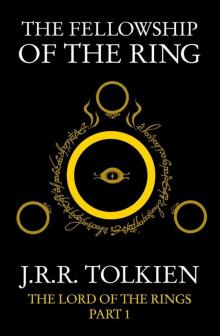 The Fellowship of the Ring
The Fellowship of the Ring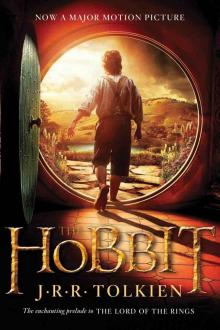 The Hobbit
The Hobbit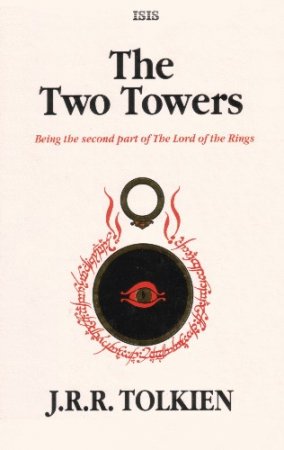 The Two Towers
The Two Towers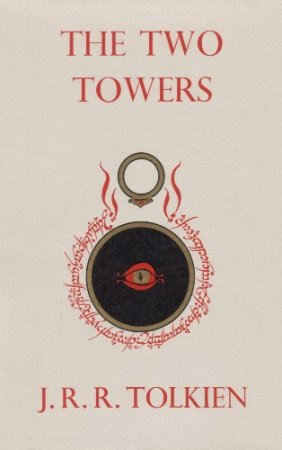 The Return of the King
The Return of the King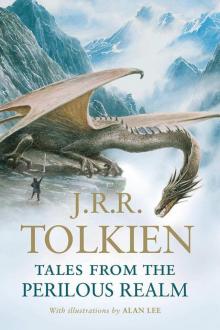 Tales From the Perilous Realm
Tales From the Perilous Realm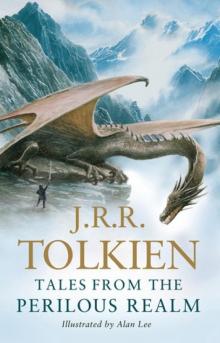 Leaf by Niggle
Leaf by Niggle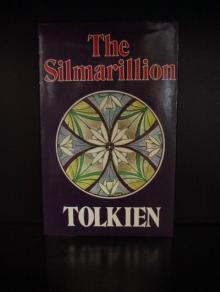 The Silmarillon
The Silmarillon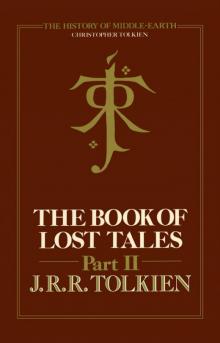 The Book of Lost Tales, Part Two
The Book of Lost Tales, Part Two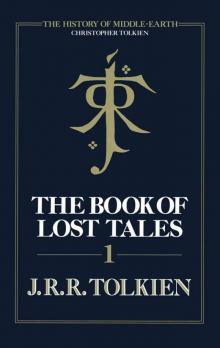 The Book of Lost Tales, Part One
The Book of Lost Tales, Part One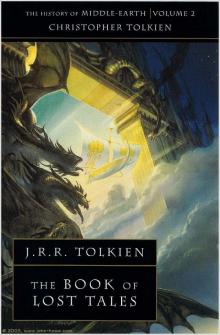 The Book of Lost Tales 2
The Book of Lost Tales 2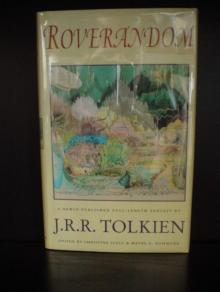 Roverandom
Roverandom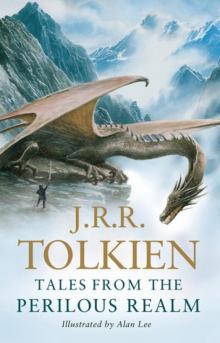 Smith of Wootton Major
Smith of Wootton Major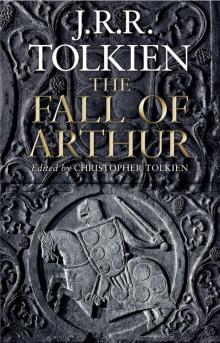 The Fall of Arthur
The Fall of Arthur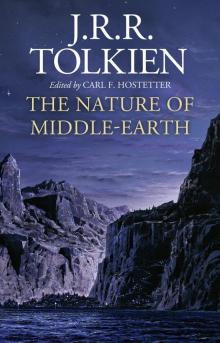 The Nature of Middle-earth
The Nature of Middle-earth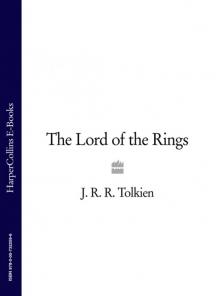 The Lord of the Rings: The Fellowship of the Ring, The Two Towers, The Return of the King
The Lord of the Rings: The Fellowship of the Ring, The Two Towers, The Return of the King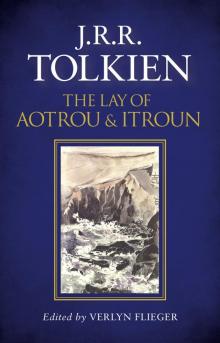 The Lay of Aotrou and Itroun
The Lay of Aotrou and Itroun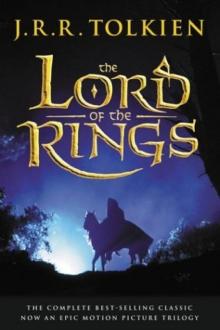 lord_rings.qxd
lord_rings.qxd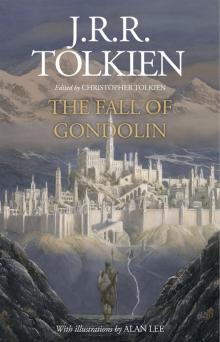 The Fall of Gondolin
The Fall of Gondolin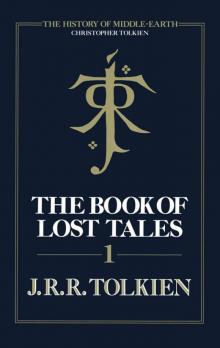 The Book of Lost Tales, Part 1
The Book of Lost Tales, Part 1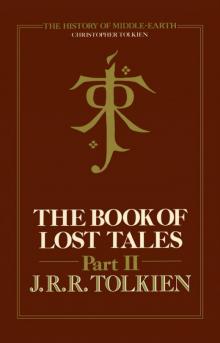 The Book of Lost Tales, Part 2
The Book of Lost Tales, Part 2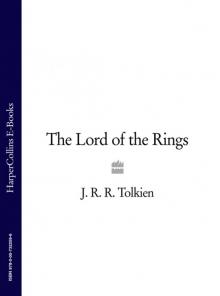 The Lord of the Rings
The Lord of the Rings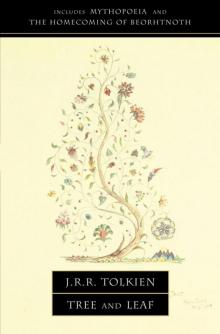 Tree and Leaf
Tree and Leaf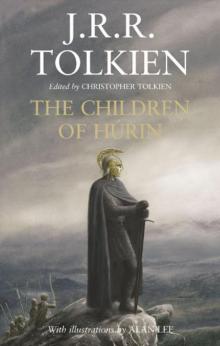 The Children of Húrin
The Children of Húrin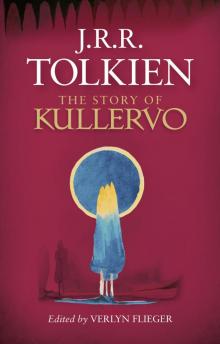 The Story of Kullervo
The Story of Kullervo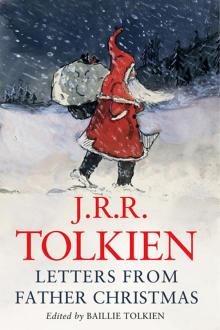 Letters From Father Christmas
Letters From Father Christmas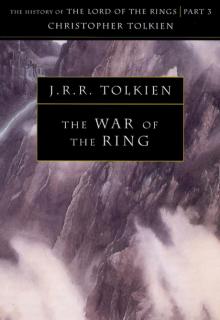 The History of Middle Earth: Volume 8 - The War of the Ring
The History of Middle Earth: Volume 8 - The War of the Ring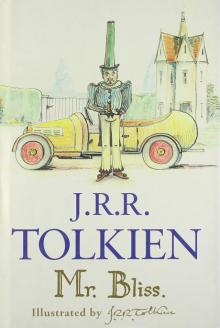 Mr. Bliss
Mr. Bliss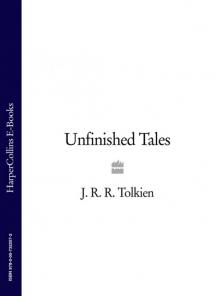 Unfinished Tales
Unfinished Tales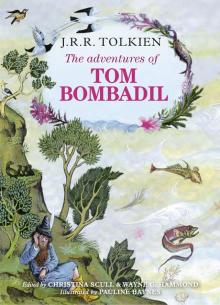 The Adventures of Tom Bombadil
The Adventures of Tom Bombadil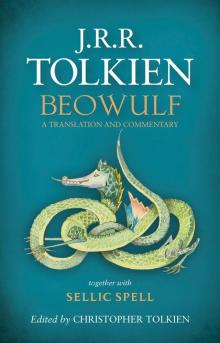 Beowulf: A Translation and Commentary, together with Sellic Spell
Beowulf: A Translation and Commentary, together with Sellic Spell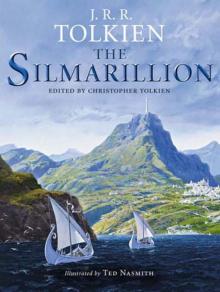 The Silmarillion
The Silmarillion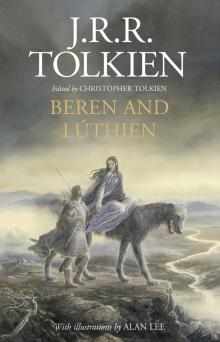 Beren and Lúthien
Beren and Lúthien